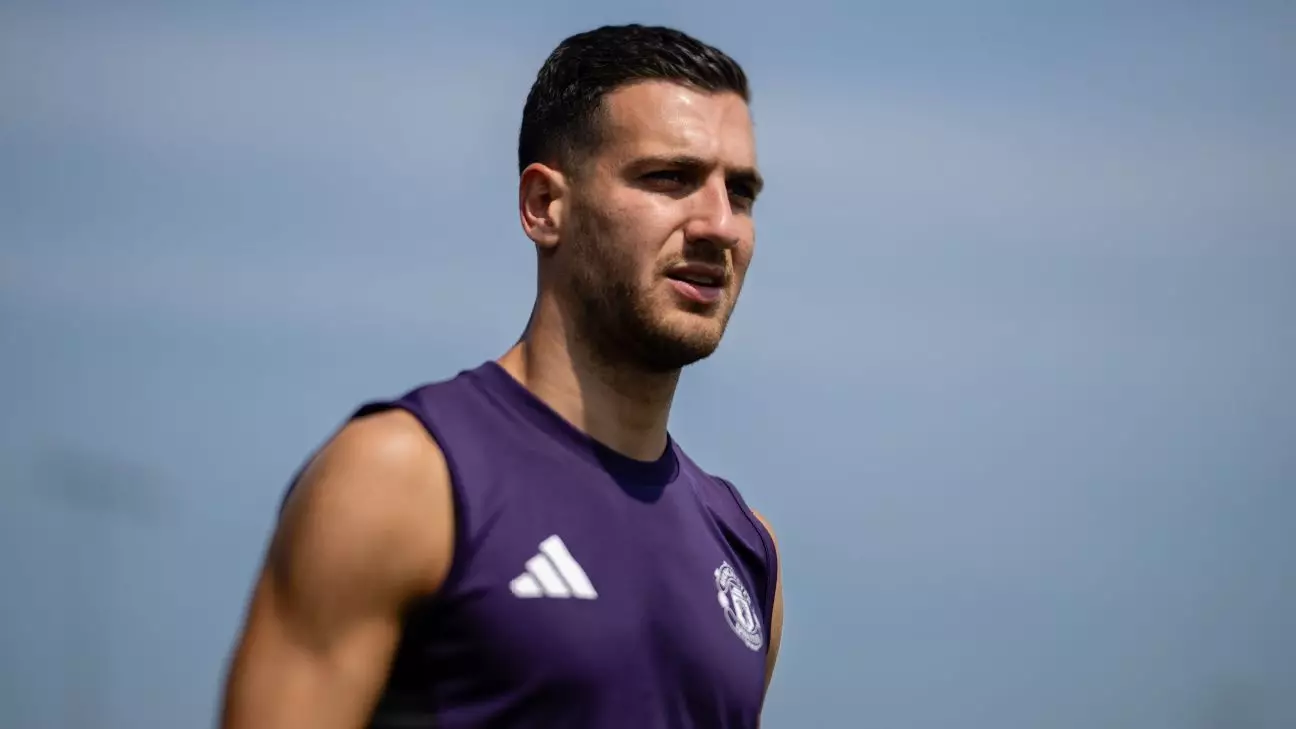Manchester United’s recent struggles have left fans and critics alike questioning the club’s trajectory. For a team that boasts a storied history of dominance and glory, a 15th-place finish—its lowest since 1974—was a stark reminder of how far the club had fallen. Yet, amidst the disappointment, a newfound sense of optimism is emerging, rooted in the renewed mental toughness cultivated by the team. The shift in attitude, as highlighted by players like Diogo Dalot, signifies that the foundation for a turnaround is being laid, emphasizing unity and collective effort.
The change in team mentality isn’t merely cosmetic; it is a strategic overhaul aimed at fostering a cohesive environment where individuals prioritize the group’s success over personal agendas. Dalot’s comments about creating a squad that “fights for each other” reflect a deliberate attempt to instill resilience and shared purpose. These principles are vital if Manchester United hopes to restore its former prestige. Turning around a long-standing decline requires more than tactical adjustments—it demands a cultural revolution. The current approach acknowledges this, signaling a departure from past complacency towards a confrontational, driven mindset.
Strategic Overhaul and Clarity from the Top
Head coach Ruben Amorim’s influence on this transformation cannot be overstated. Making bold decisions before the US preseason tour—such as leaving out key players like Garnacho, Antony, Sancho, and Malacia—demonstrates his determination to reset standards. Such moves send a clear message: the club is committed to raising the bar. Furthermore, allowing established players like Marcus Rashford to explore loan options indicates a willingness to make difficult choices for the long-term health of the squad.
Amorim’s strict stance on discipline echoes through his decisions, emphasizing that being part of Manchester United is a privilege that demands accountability. Dalot’s affirmation that only players meeting certain standards are included in the preseason squad underscores a vision of professionalism and high expectations. This clarity is crucial in rebuilding trust within the club, signaling that mediocre performances and leniency are no longer acceptable. Under Amorim’s leadership, Manchester United is attempting to foster an environment where talent alone isn’t enough; character and dedication are equally essential.
The Power of Leadership and Collective Belief
One of the most pivotal moments in this new era is the decision of Bruno Fernandes to reject a lucrative offer from Saudi Arabia, choosing to stay and fight for his place under Amorim. Such a stance exemplifies the power of leadership rooted in conviction. Fernandes’s loyalty can serve as a catalyst for unity within the dressing room, inspiring his teammates to believe in the vision laid out by the coaching staff. It is a potent reminder that success isn’t just about talent, but also about individuals who are committed to the cause.
Dalot’s enthusiasm about Fernandes’s decision highlights that the squad perceives this as a statement of belief—not just in Fernandes, but also in the club’s future prospects. When key figures stand firm in their commitment, it has a ripple effect, motivating others to embrace the challenge ahead. This collective confidence, coupled with an unwavering focus on standards and discipline, might just be the catalyst Manchester United needs to break free from the rut of recent seasons.
Looking Ahead: A Fight for Respect and Relevance
While preseason victories over West Ham and Bournemouth provide some welcome early signs of progress, the journey toward resurgence remains arduous. The real test lies in translating these positive mental shifts into sustained performances across the competitive fixture list. The club’s renewed focus on fighting spirit and collective effort is encouraging, but it must be complemented by tactical discipline and strategic reinforcement.
Manchester United’s identity is deeply embedded in resilience and fighting spirit—qualities that were arguably absent during their downturn. The current approach suggests a conscious effort to re-establish that identity, emphasizing that success will require more than individual brilliance; it demands relentless unity. As fans and critics watch these developments unfold, it becomes clear that the club’s true reconstruction is rooted in its collective attitude. If this momentum continues, United’s future could hold a remarkable reversal of fortunes—powered not just by talent, but by an unbreakable belief in the group’s collective strength.


Leave a Reply